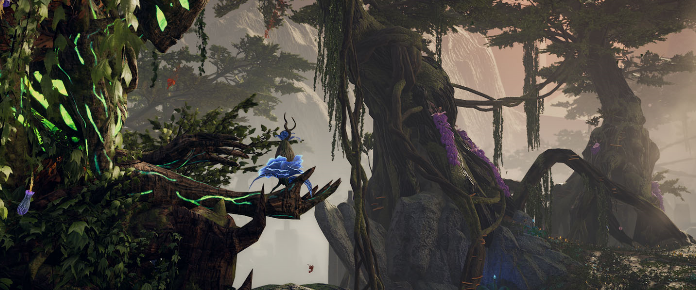
When we write or talk about MMO communities, we often focus on the practicalities of guilds or in-game events, the drama of forums, and community backlash following controversial developer decisions. It’s easy to overlook the fact that we’ve built these complex virtual societies in many games that have had remarkably positive impacts on people’s lives. MMOs can represent not only a lifeline for those who don’t or can’t make friends in the real world but also a safe testing ground for people to develop skills and explore interests.
I’ve been tagging along on the EVE Online Invasion World Tour this year as CCP descends on player-run events across the world (most recently EVE Berlin), and it’s really got me thinking about some of the good that the EVE Online community does for people. At each stop on the tour so far, I’ve spoken to players whose lives have been improved by this game and its community, from the individuals turning their in-game experiences toward real-life careers to the man who tragically lost his wife in a terrorist attack and found support within EVE.
In this edition of EVE Evolved, I look at some community insights from the EVE World Tour, how the community deals with loss, and how EVE has allowed people to explore valuable skills in the real world.
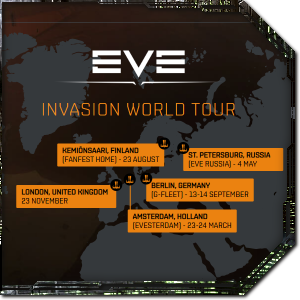 The friendship machine
The friendship machine
EVE Down Under in Australia opened with a pretty raw talk from Hilmar digging into research CCP had conducted on the positive impact EVE has had on players. They call it “the friendship machine,” and it’s actually more than just a marketing gimmick or some high-level aspirational spin. It’s important not to underestimate how much of a lifeline in-game communities can be for people, and the kinds of long-term friendships you can form just by playing alongside people every day.
I’ve spoken to players on the world tour who met life-long friends through the game, some players on the autistic spectrum who found acceptance in EVE‘s virtual world, and players with clear social anxiety opening up to chat with strangers because they know everyone in the room is a friend. Real life community events feel to me like coming home to your people — you can strike up a conversation with anyone about some in-game minutiae and you know they’ll probably be just as excited as you to talk about it.
The impact of being part of a community like EVE‘s goes further than just forming friendships over time and finding groups to belong to, though. EVE has at times been a genuine support network for players in real life strife, and it’s taught people qualities such as resilience and new skills that they have turned to real life advantages. I know this first hand because I’m one of those people, and talking to players on the EVE World Tour has shown me just how common that story really is.
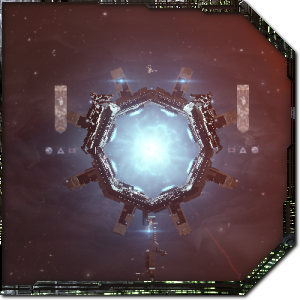 A community mourns together
A community mourns together
At one point during the EVE Down Under weekend I found myself in a rather intense one-on-one conversation with a player about his experience with EVE, but it wasn’t a tale of epic spaceship battles or dark political twists in the sandbox. It was about a real life terrorist attack in which his wife tragically lost her life. It was about how his local community and religious community didn’t reach out to help him, but the EVE Online community did.
I think about that conversation any time I read an off-handed comment online about EVE having a toxic community. I also think about the talk at one of the events given by Mom Bellicose, who tragically lost her son to suicide in 2014 and has since become deeply supportive of the EVE community he loved. It’s the kind of support that we see in efforts such as the Broadcast For Reps initiative that encourages people suffering from depression to reach out for help, and it’s why the community loves “Space Pope” Max Singularity, who is famous for doling out advice and compassion.
The EVE playerbase has experienced loss together throughout the game’s 16 years of operation, and it mourns like any society. Players hold cyno candle vigils to mark the passing of friends on the map for all to see, and enshrine lost loved ones in the community graveyard in the Molea star system. At the Berlin stop on the World Tour, CCP announced plans to officially memorialise the Molea graveyard with a colossal monument and maintain the grave containers floating around it.
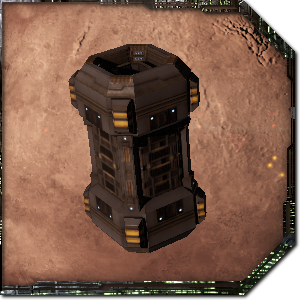 Spreadsheets in space
Spreadsheets in space
EVE Online is often mockingly referred to as Spreadsheets in Space or Microsoft Excel Online, and that’s an angle CCP is starting to really lean into now. “Spreadsheets run the world,” Hilmar said in his opening talk at one of the World Tour events, and he’s kind of right. Every organisation has tools and spreadsheets it uses on a daily basis, whether it’s a global shipping firm in real life or an internet spaceship alliance’s logistics division.
Throughout the tour, we’ve seen talks from players exploring leadership roles in alliance warfare and or showing off player-built software, both demonstrating skills which are actually highly desirable in industry. Sometimes players will apply skills from their real-life careers to get an advantage in EVE, but for many EVE is the motivation for developing the skills and acts as a safe testing ground for them. We’ve seen everything from software engineers and business owners to film-makers, poets, and writers get their starts in EVE over the years.
Though some people may find the stories of players transferring EVE experience into the real world unlikely, I find them familiar. I practically grew up with EVE Online, learning people skills as a diplomat for the Interstellar Starbase Syndicate and writing skills as a contributor to EON magazine back in 2006. I learned how to build spreadsheets to solve PvE tanking challenges, and later realised I had a talent for computer programming thanks to EVE. Fast-forward to today and I’ve now been in games journalism for over a decade and run an indie game dev studio, and I don’t know if any of it would have happened without EVE.
As the audience that plays online games and MMOs has grown and matured over the years, EVE has become a place where adults routinely build real friendships and support each other. Though players and those of us in the gaming media may get hung up on expansions and balance changes, EVE Online is now ultimately about the people that inhabit it.
For many players, the EVE community has been a place where they can be themselves without judgement, a group of friends who support each other in times of need, or a safe space to explore new skills and cultivate new talents without the risk of failure. EVE Online as a game is deeply rooted in cut-throat politics, deceit, theft, and violence, but I think it’s clear that the game and its community can be a powerful force for good in the world.
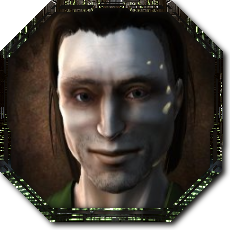 EVE Online expert Brendan ‘Nyphur’ Drain has been playing EVE for over a decade and writing the regular EVE Evolved column since 2008. The column covers everything from in-depth EVE guides and news breakdowns to game design discussions and opinion pieces. If there’s a topic you’d love to see covered, drop him a comment or send mail to brendan@massivelyop.com!
EVE Online expert Brendan ‘Nyphur’ Drain has been playing EVE for over a decade and writing the regular EVE Evolved column since 2008. The column covers everything from in-depth EVE guides and news breakdowns to game design discussions and opinion pieces. If there’s a topic you’d love to see covered, drop him a comment or send mail to brendan@massivelyop.com!

